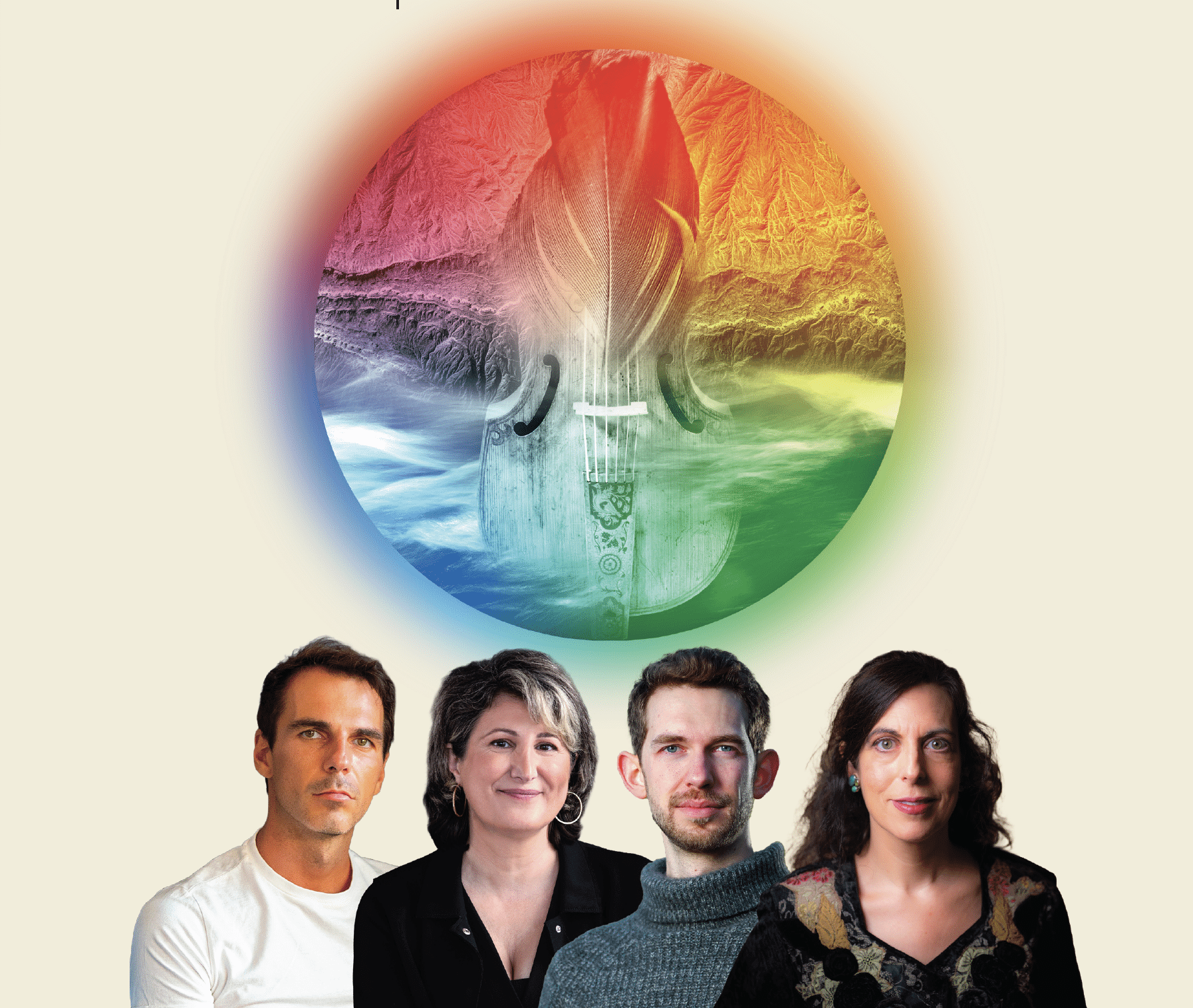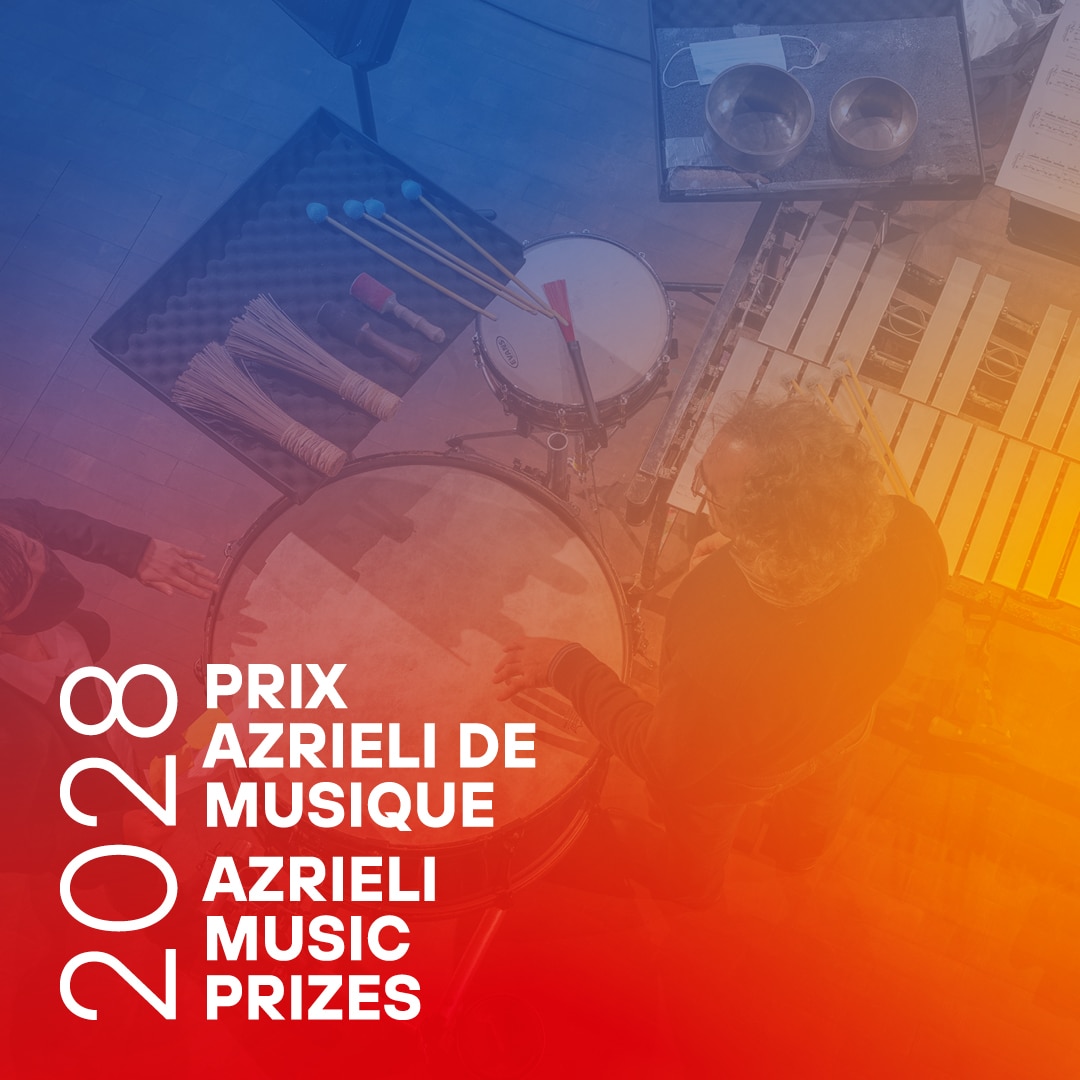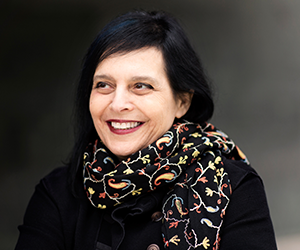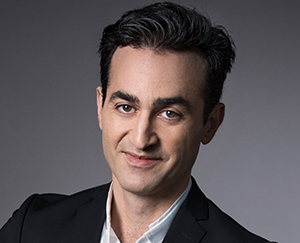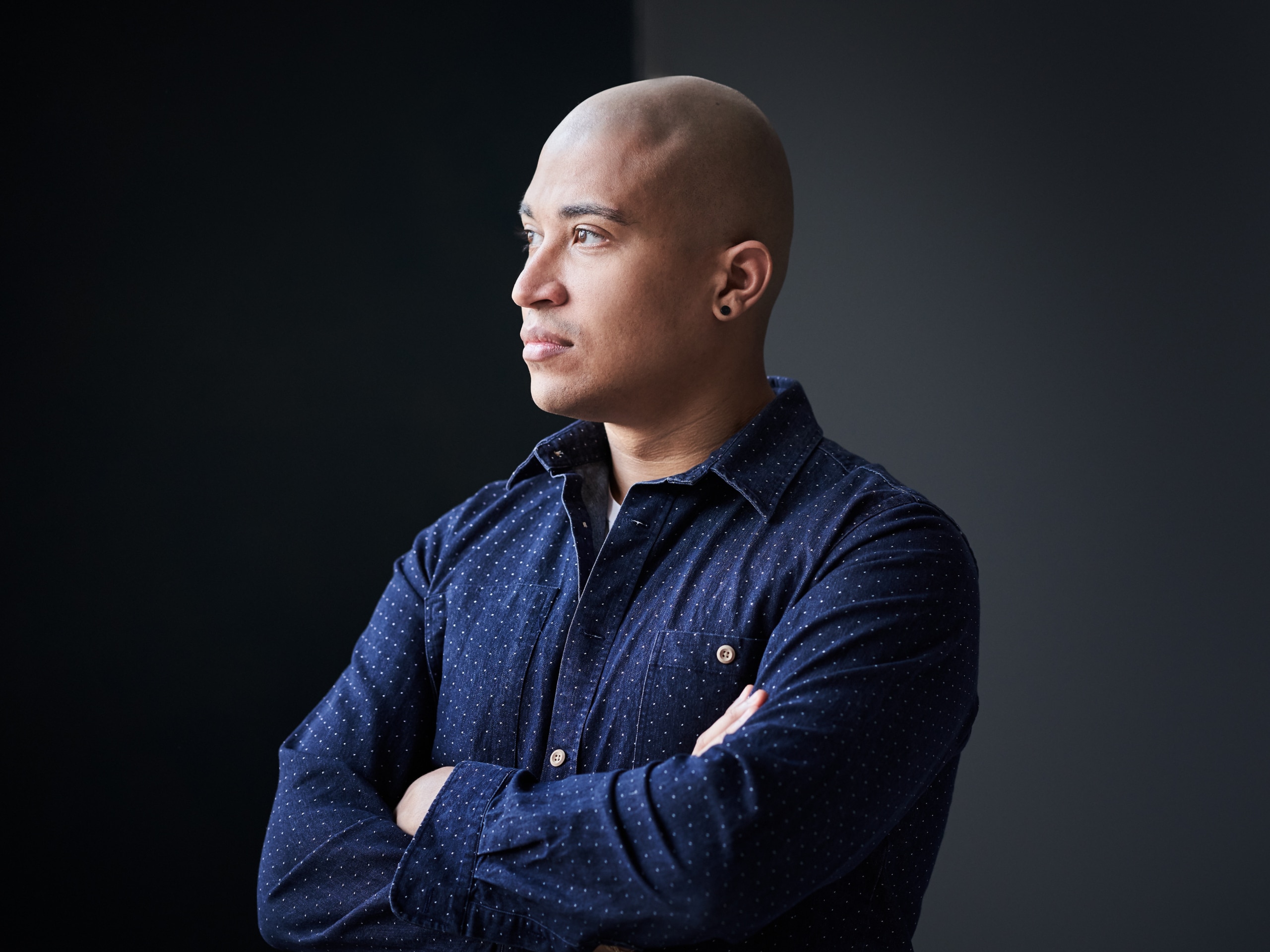The Application Package
All application documents and supporting materials must be submitted electronically via the Muvac portal between February 4 and May 6, 2026. Applications received after May 6 at 11:59 PM EST will be disqualified.
The application package is the combination of all documents and information submitted through the Muvac platform. The application must include:
- a current curriculum vitae (CV) highlighting relevant training, experience, performances and awards;
- a one-page works list detailing a key selection of the composer’s original and completed musical works, their premiere dates and recordings, where applicable;
- a written Proposal for a new musical work not to exceed 1,500 words (see “Guidelines for Writing the Written Proposal”;
- Two work samples, each with a score and recording:
-
- one sample should be the composer’s best composition (regardless of instrumentation);
-
- one sample should be the composer’s best composition that is closest to the instrumentation required for the commission;
-
- The work samples can be approximately 10-20 minutes in duration, each. If they are substantially longer, the composer may provide an excerpt that they would like the Jury to consult.
-
- MIDI realizations or piano reduction recordings may be submitted where live audio recordings are unavailable.
- Two reference letters from past commissioners, producers, presenters, performers, or other artistic partners:
-
- The purpose of these letters is to demonstrate the composer’s capacity to deliver on their proposal. Additionally, if they are selected as an AMP laureate, their ability to serve well as such. This includes such attributes as professionalism, time management, public speaking and communication skills, and ability to work collaboratively.
-
- Note that composers will upload these reference letters to the Muvac platform.
-
- All documents must be uploaded as PDFs.
For full details on the Application Package, see the 2028 AMP Commission Guidelines.
Please consider:
A successful application demonstrates a clear balance between musical work samples and the written proposal. Strong musical samples must be supported by a well-researched, thoughtful proposal. The strength of one will not compensate for weakness in the other. Also, the clarity and quality of submitted scores and recordings are essential to the Jury’s evaluation; materials should be legible, complete, and presented in clear, undistorted audio. Applicants are strongly encouraged to review the “Guidelines for the Proposed Musical Work” and the “Guidelines for Writing the Proposal”, as well as the Adjudication Criteria (see Appendix 2 for full adjudication material), which outlines the assessment metrics used in adjudication.
Acceptable Uses of Artificial Intelligence
To ensure fairness and clarity, the following rules apply to any use of AI tools in preparing the application:
Permitted Uses of AI
AI tools may be used only to support language, communication and presentation, including:
- translation of application materials;
- proofreading and correction of grammar or clarity; and/or
- organizing or phrasing written materials such as the Proposal, CV or works list.
AI tools may also be used to generate electronic audio demos (e.g., MIDI mockups) when a live performance recording is not available.
Prohibited Uses of AI
AI tools may not be used to create, develop or influence musical content of any kind. This includes, but is not limited to:
- brainstorming ideas for the Proposed Musical Work;
- developing musical concepts or themes;
- generating structural, harmonic, melodic or rhythmic ideas;
- orchestrating or arranging musical material; and/or
- any form of compositional decision-making.
For clarity: AI may not be used in the creation of music or musical scores in any shape or form.
Any musical sample scores that are fully or partially created with AI assistance will result in automatic disqualification.
Disclosure Requirement
Applicants must disclose any use of AI in preparing any portion of their application, whether it be in their Proposal, work samples or supporting materials.
Disclosure will not negatively affect adjudication. Its purpose is simply to ensure transparency and fairness for all applicants.
Cultural Materials & Inspiration
The Prize does not restrict cultural engagement by identity, heritage or nationality. While Works that explore cultural material, musical styles, themes, stories, languages or idioms outside of the composer’s primary cultural background are eligible, they should be supported by any combination of the following: lived experience, sustained study, long-term collaboration or other forms of meaningful immersion, to avoid (mis)appropriation. No single pathway is presumed or required. This consideration applies across all three Prizes where relevant.
AMP is open to all composers. We welcome and encourage people from all nationalities, faiths, backgrounds, genders and ages to apply their artistry, creativity and musicality in response to the Prize Themes. One of the Foundation’s hopes is that AMP will contribute to thoughtful intercultural understanding through careful consideration of what cultural expression through music is and can be.
What is International Music?
The Azrieli Commission for International Music is open to composers worldwide. This Prize prompts composers to engage deeply in exploring cultural expression(s) that have a meaningful connection to the composer’s lived experience through the proposal for a new musical work.
For AMP, a “meaningful connection to lived experience” refers to the depth of engagement, understanding and sustained relationship a composer has with a particular culture, rather than to identity, origin or cultural affiliation. For more information, please read “Cultural Materials & Inspiration”. For clarity, what matters is not how much a composer identifies with a particular identity, but how clearly, thoughtfully and authentically the Work engages with its cultural expression(s).
AMP understands International Music as encompassing the full range of humanity’s cultural expressions, including historical and contemporary practices; sacred and secular traditions; and indigenous, popular, folk and art music contexts. International music is understood as both deeply rooted in specific histories, rituals and traditions, and as dynamic, evolving and responsive to contemporary life and future aspirations.
International music can:
- be based purposefully and consciously on musical materials traditionally perceived as belonging to a specific community, region, nation or culture;
- incorporate sacred or secular musical materials from numerous traditions;
- be based on historical subjects, events, characters, legends or themes;
- incorporate ritual, religious or cultural practices, traditions, texts or symbols;
- draw on languages and/or dialects;
- include or be founded upon cultural texts and literature (e.g. prose, poetry or dramatic writings);
- depict in musical terms visual images of cultural connection, such as landscapes, built environments, community spaces or scenes of everyday life;
- give voice to culturally specific ideas or concepts grounded in lived, inherited or community-based experiences; have been composed expressly for a commemoration, celebration, ceremony or other occasion – conceived in some way to represent the nature or significance of that occasion; and/or
- Explore an interplay of cultures that is unique to the composer’s lived experience, approached with depth, specificity and contextual grounding.
This Prize is not intended for works that assemble or reference multiple cultures as a survey, collage or pastiche, nor for projects grounded in generalized universalism. Instead, it supports focused, meaningful and deeply contextual engagement with cultural expression, where the Work demonstrates a clear and thoughtful connection to the composer’s lived experience. (Please see “Cultural Materials & Inspiration”.)
How Applications Will Be Evaluated
The Azrieli Music Prizes (AMP) adjudication process includes four steps. This section summarizes how each application will be evaluated and what the Jury is looking for at each stage. For complete details of the adjudication process, including evaluation criteria for each round, please see Appendix 2.
Step 1 — Completeness Check
AMP staff confirm that all required application materials have been included, correctly formatted, and are complete. Only complete applications move forward in the competition.
Step 2 — Eligibility Check
A small team reviews the Proposal to ensure it meets the basic requirements of the selected Prize. This includes instrumentation (3–15 chamber musicians), duration (12–18 minutes) and the thematic requirements. These are assessed via the checklists found in Appendix 2. Proposals that meet both general and thematic eligibility advance in the competition.
Step 3 — Musical & Technical Merit Adjudication
A panel of composers, musicologists, music practitioners (such as conductors, artistic directors or musicians) review the composer’s sample works. They assess artistic creativity, technical craft and quality of musical writing. They also assess whether the composer demonstrates the experience and capacity to complete the Proposal at a high level. The strongest applications (ie. the top 30 in each Prize) move forward to the Final Jury.
Step 4 — Final Jury
The Final Jury evaluates finalists using the following two criteria:
- Artistic Excellence – the strength, originality and expressive depth of the composer’s musical vision, supported by refined technique and idiomatic writing for chamber music, demonstrated through their musical samples.
- Thematic Alignment – how meaningfully, thoughtfully and creatively the Work engages in the specific theme of the Prize.
To be selected for the commission, an application package must achieve the highest ranking within both criteria.
Notification of Results
- Composers will receive a confirmation via Muvac when their application is submitted.
- All applicants are notified of results via Muvac; winners will be contacted directly.
- Due to the volume of applications, AMP cannot respond to emails requesting updates or confirmations that their application has been received.
Prize-Winner (Laureate) Responsibilities
The composer who wins an Azrieli Music Prize agrees to:
- adhere to the Prize Guidelines published by AMP, including but not limited to duration and instrumentation for the commissioned work;
- engage in the composition of their Proposed Musical Work during the time allotted between their selection as the Prize Laureate and the deadline for submitting the score (summer 2028);
- update the Specialist, Azrieli Music Prizes and other AMP representatives (as required) according to a pre-approved schedule, including such details as progress made towards completing the commissioned work and/or identifying any major deviations from the original proposal;
- ensure that all copyrighted materials used in the commissioned work have been disclosed to the Specialist, Azrieli Music Prizes, and that all rights have been granted in writing (if applicable);
- work closely with their commissioned author, in the event that a composer commissions a new text, to ensure all guidelines and timelines are met (if applicable);
- work with a copyist or editor to prepare the final score and performance set for delivery;
- have their work premiered as part of the AMP Gala Concert; performed as part of two additional international concerts; audiovisually captured, livestreamed and distributed via one or more digital platform(s); and professionally audio recorded, mixed and mastered for future commercial release;
- make themselves available (either physically or virtually, as conditions dictate) for the rehearsals and performances of their Prize-winning work (at AMP’s expense);
- grant the Azrieli Foundation the right to serve as sole commissioner, thereby retaining performance rights for the premiere, international performances and audiovisual capture, recording and distribution rights;
- provide any information required by AMP representatives relating to their score, its performance, or other information which might be useful from a marketing, public relations or social media perspective; and
- participate in outreach events (workshops, press conferences, media interviews and other such promotion and education activities) as they relate to the Azrieli Music Prizes and its objective to educate the public about the enduring appeal and artistic importance of the works that result from engaging with the Prize Themes.
Appendix 1: Instrumentation & Text
The Proposed Musical Work for chamber group and optional soloists must respect the following maximum instrumentation as listed below.
All instrumentations are eligible, provided:
-
- It is scored for between 3 and 15 players, and
- It is made up from the list of instruments below, in any configuration.
Violin 1
Violin 2
Viola
Cello
Bass
Flute
Oboe
Clarinet 1
Clarinet 2
Bassoon
French Horn
Trumpet
Trombone
Piano
Percussion
For clarity, the work could be for all 15 players, or could be for a smaller ensemble such as wind quintet, string quartet, piano quintet, brass trio, mixed septet, etc. All combinations are equally eligible.
Soloist (Optional)
Soloists are optional. If the composer chooses to include soloists, they may employ up to a total of two (2). Soloists are in addition to the number of chamber ensemble players above. Soloists may be any combination of singer(s) or instrument(s). Instruments do not need to be from the list above and may include non-standard and non-western instruments.
Digital Media and Live Electronics (Optional)
Digital media and live electronics are optional. Composers may incorporate pre-recorded digital media (audio and/or video) and/or limited live electronics, subject to the following conditions:
- All digital/electronic elements must be realizable within the standard technical capabilities of a professional concert hall and employable within a standard concert presentation format.
- No additional artistic or technical personnel (e.g., directors, designers, dramaturgs, technologists, external sound engineers) will be provided.
- If live electronics are used, they must be performable by a single designated performer, or by an existing musician, who must be included within the maximum of fifteen (15) performers permitted under the Prize guidelines.
- The work must remain viable for recording and for future performances by professional ensembles without any additional, specialized or non-standard infrastructure.
Composers must clearly describe the nature, format and technical requirements of any digital media or live electronics in their Proposal.
Laureates will be responsible for bearing all costs associated with creating new material and/or securing rights for copyrighted material embedded in any digital media or live electronics employed in their prize-winning work (if applicable).
Use of text or other pre-existing cultural material
If using text or other existing cultural material (e.g. electronic sound or video) as part of the Proposed Musical Work, the composer must provide the following information, depending on the type of material that is intended. The information should either appear in the Proposal proper or in an additional document.
Please note: The composer is responsible for all costs associated with commissioning new text/material and/or securing rights for copyrighted text/material (if applicable).
THE COMPOSER’S OWN PREVIOUSLY WRITTEN TEXTS/MATERIALS:
- Please include these with the application.
ORIGINAL SOURCE TEXTS/MATERIALS: (i.e., someone else has already created these materials)
- The title, language, author (if known) and copyright status of the texts/materials.
TRANSLATED/ADAPTED TEXTS/ MATERIALS:
- The title, language, author and copyright status of the original texts/materials.
- The title, language, translator, and copyright status of the translated/adapted texts/materials.
ADDITIONAL STEP FOR TEXTS/MATERIALS UNDER COPYRIGHT:
- If any text/material is under copyright, the composer must provide proof of permission to use the text from the original author, estate, and/or publisher. Licensing of the copyrighted text can be conditional on the composer being awarded the Prize.
ADDITIONAL STEPS FOR COMMISSIONED TEXTS/MATERIALS: (i.e., The composer will ask someone to create new materials if awarded the Prize)
- If any text/material is being commissioned by the composer, the intended author must provide proof of their willingness to participate in the form of a signed letter. The text/material commissioning agreement can be conditional upon being awarded the Prize.
- Please include a biography of the intended author demonstrating their aptitude for creating the commissioned text/material.
ADDITIONAL STEPS FOR TEXTS WRITTEN BY THE COMPOSER: (i.e., The composer wishes to create their own materials, but has not yet done so)
- If a substantial part (more than 50%) of the text is to be written by the composer, it is strongly encouraged that they provide proof of experience writing the same style of text and experience writing in the same language. Proof can be in the form of previous musical works or samples of libretto/poetry attached to the application as additional documents; or as entries in the composer’s CV that outline accolades, published works, commissions and/or recordings that include the composer’s written texts.
Appendix 2
The Azrieli Music Prizes is committed to transparency in its adjudication process.
For full details on the adjudication process, including juror eligibility checklists and processes, see Appendix 2 of the Commission Guidelines PDF.
Questions & Technical Support




